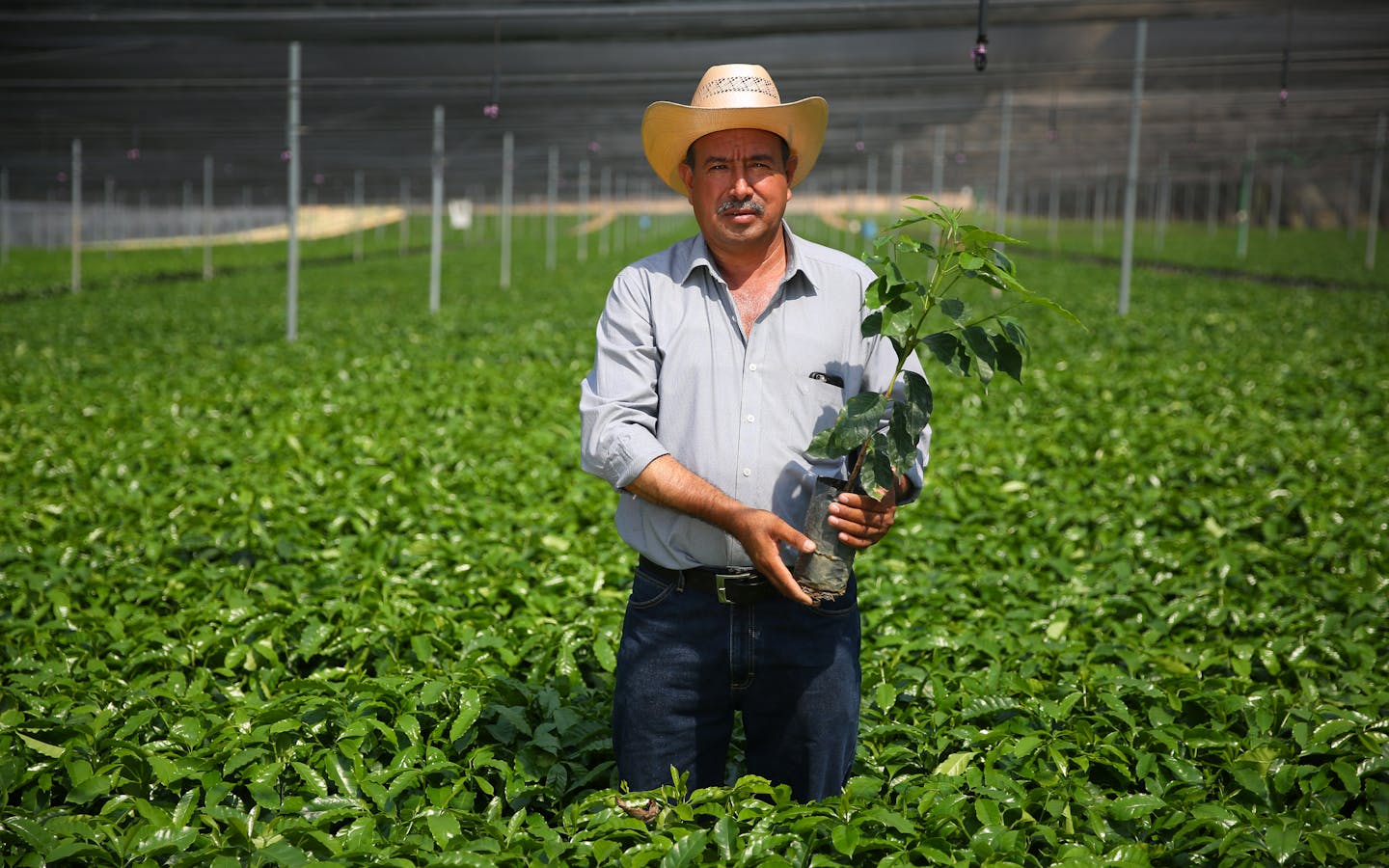What is renovation?
Renovation --- the removal of old coffee trees and the planting of new disease-resistant and climate-tolerant ones - is an important way to keep farms healthy and productive. By increasing yield per tree in existing areas, renovation practices can avoid the need to expand coffee production into surrounding lands, including forests.
Coffee-growing regions around the world are struggling to maintain the quality and supply of coffee in the face of aging trees, diseases such as coffee rust, and volatile markets.
These impacts – all of them exacerbated by climate change – are becoming more pronounced. Supporting farm adaptation through the renovation of coffee plants with climate tolerant varietals becomes a critical element in ensuring the future of coffee for all.
Providing healthy trees to farmers in coffee-growing regions makes existing lands more productive and keeps us from expanding into forests. We’re proud to stand alongside Starbucks in this long-term endeavor to ensure that both livelihoods and nature around the world are vibrant and healthy.
Dr. M. Sanjayan — CEO of Conservation International
100 Million Trees
For more than 25 years, Conservation International and Starbucks have partnered to promote coffee production that is sustainable, transparent and good for people and the planet.
In 2015, Starbucks teamed with Conservation International to make a bold commitment: For every bag of coffee sold in participating Starbucks stores in the United States between September 2015 and December 2016, one new rust-resistant coffee tree was provided to farmers in places most affected by coffee leaf rust, a plant fungus that damages the trees’ ability to produce. Recognizing the program’s positive impact, Starbucks expanded the effort and in 2017 committed to deliver 100 million healthy coffee trees to the hands of farmers in Mexico, El Salvador and Guatemala by 2025.
delivered to date
reached across El Salvador, Guatemala, and Mexico
impacted by new seedlings – equivalent to 38,103 football fields
*Calculated assuming an average of 3,330 coffee trees per hectare.
This project involves a network of 19 nurseries and 27 suppliers
Ensuring protection for nature and people

Climate-tolerant coffee trees are a critical part of the sector's effort to help farmers adapt to climate change.
As a partner in this effort, Conservation International has worked with Starbucks to put in place the following safeguards:
- Farmers agree not to plant the new coffee seedlings in natural forest areas.
- Farmers agree to maintain any existing native shade tree species unless they compete significantly with the coffee trees.
- Farmers acknowledge that the decision to participate in the program was made freely.
Conservation International monitors the program to ensure farmers receive high quality seedlings and to verify that the safeguards were understood and respected by farmers and supplier partners.
WANT TO LEARN MORE?
HELP FARMERS
Help support Conservation International as we aid farmers around the world.

